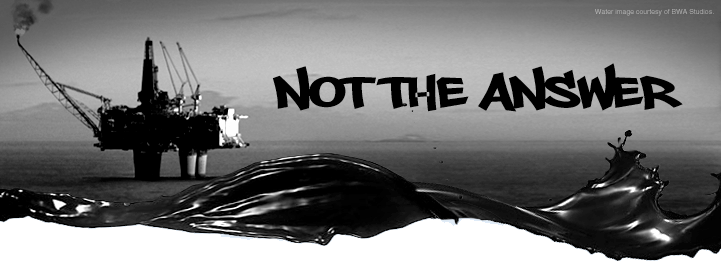 "reduce our dependence on foreign oil and gas." The bill would: 1) provide an $850 million subsidy to the oil and gas industry over the next ten years to conduct seismic surveys on the Outer Continental Shelf (“OCS”); 2) phase-out royalty relief for future leases; and 3) strengthen support for an Alaskan pipeline to carry natural gas to the lower 48 states.
"reduce our dependence on foreign oil and gas." The bill would: 1) provide an $850 million subsidy to the oil and gas industry over the next ten years to conduct seismic surveys on the Outer Continental Shelf (“OCS”); 2) phase-out royalty relief for future leases; and 3) strengthen support for an Alaskan pipeline to carry natural gas to the lower 48 states.It is unclear how the government subsidy for seismic surveys will further the stated purpose of the bill. The industry has not, in the past, seemed reticent to fund and carry out the surveys themselves. There does not seem to be any reason for the government (i.e. taxpayers) to absorb costs that are willingly borne by the industry.
Phasing out the royalty-relief program for OCS leases is a more logical policy. Royalty relief , initiated in 1995, allows oil and gas companies to delay royalty payments on their leases until certain production quotas have been met. The program was originally designed to encourage domestic energy production at a time when oil prices were low. Although the program made little sense even then, it makes no sense now, when oil prices are at record-highs. Given the current state of the federal government’s finances, getting rid of royalty relief and pocketing the increased royalties seems like good policy. However, there are two possible downsides to this scheme that also apply to royalties generally. First, the prospect of increased revenue may make the federal government more eager to grant leases, and less concerned with its proper regulatory function. Second, the scheme makes offshore drilling a larger and steadier source of revenue for the government, and may make the government less apt to focus on renewables.
The final major topic of the bill is a natural gas pipeline between the North Slope of Alaska and the Midwest. The bill increases the federal loan guarantee for a pipeline from $18 million to $30 million and secures a right of way through Denali National Park. Besides the obvious problems inherent in constructing a massive infrastructure project through a pristine wilderness area, there are also concerns that the pipeline will lead to increased greenhouse gas emissions. Natural gas is the cleanest fossil fuel, but the natural gas transported in this pipeline may be diverted to Alberta and used to power extraction of the dirtiest fossil fuel—tar sands oil. Over its life cycle, tar sands oil leads to 10-45% more greenhouse gas emissions than conventional crude.
The same day it passed S.916, the Senate Committee failed to pass S.917, a bill originally designed to make offshore drilling safer. Disputes over S.917 arose over its revenue sharing provisions. The Committee could not come to an agreement on whether and to what extent adjoining coastal states should be entitled to OCS royalties. One potential problem with states sharing the revenue is that they would then push for more offshore drilling. Under the OCSLA, states are entitled to participate in drilling planning and policy.
by Natasha Bhushan







 ;
;



